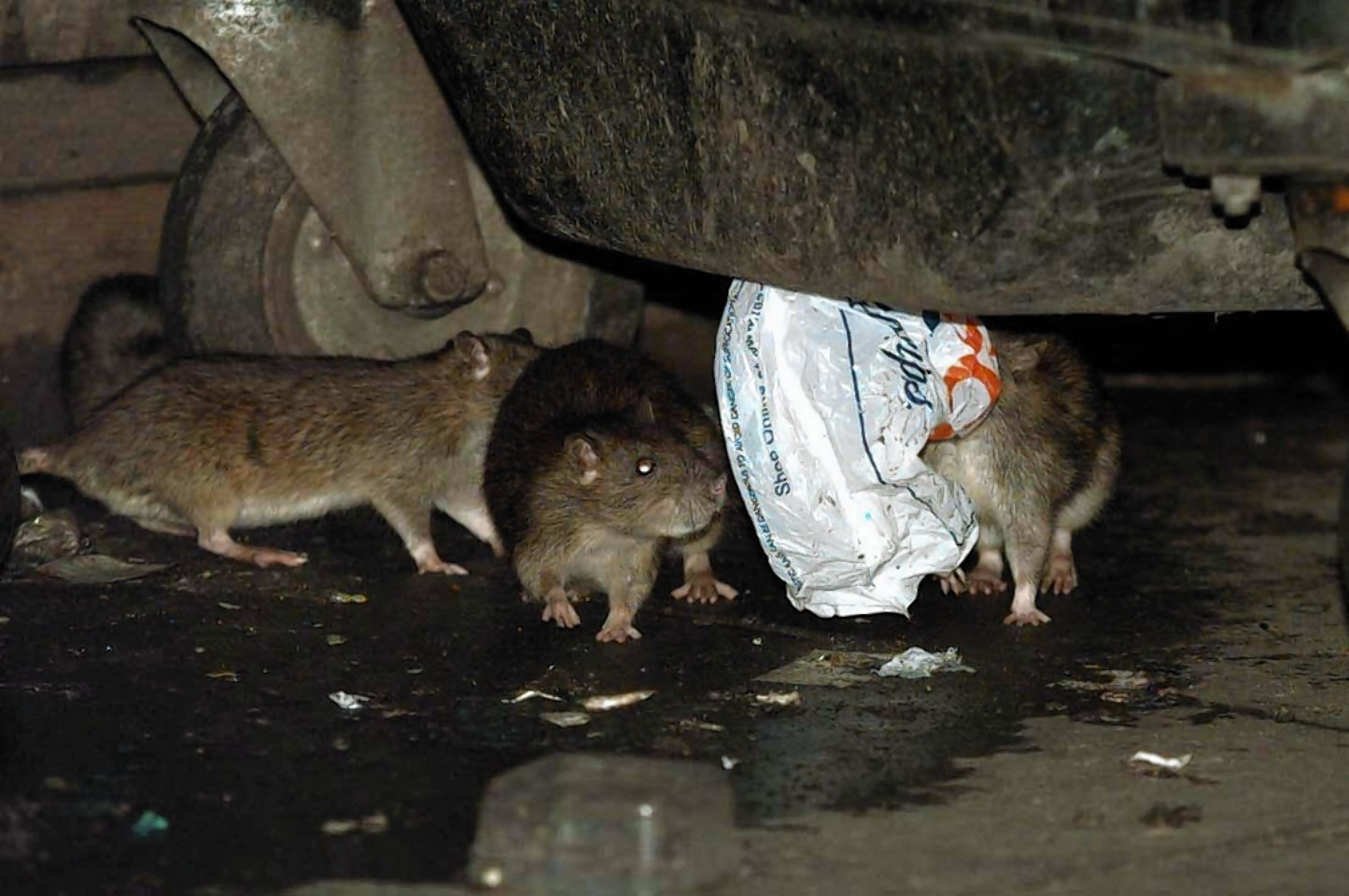One of the UK’s foremost microbiologists last night warned a proposal to reduce bin collections in the north could increase the chances of rat diseases spreading to humans.
Professor Hugh Pennington said overfilled buckets would attract the rodents – and potentially pose grave concerns for public health.
The emeritus professor of microbiology at Aberdeen University spoke out after it emerged Highland Council was asking residents for their views on cutting bin collections to every three weeks instead of two to reduce costs.
He said the rodents were capable of spreading a range of diseases if they were drawn into close contact with people.
“Leptospirosis is a disease of rats’ kidneys which is passed on by their urine and can be very dangerous if the diagnosis is missed and human kidneys are affected,” he said.
“Salmonella is another common form of disease spread by rodents. My message would always be to keep rats at bay and try and keep the lids on bins – whether they are being collected every two weeks, or every three.”
A leading north pest control expert said he feared rats could also spread a little-known disease called Hantavirus through their droppings, urine, or saliva.
Edward Cumming, who has spent almost 30 years dealing with rodent infestations, said rates of infection were spreading in the UK and he would be alarmed by anything which might raise the risk in the north.
Mr Cumming, 67, from Ferry Brae, North Kessock, said people could also catch the illness – which can be fatal – through inhaling contaminated dust.
“I am not happy with this three-week proposal,” he said.
“There are only two of us in the house and after two weeks the bin is filled to overflowing, so what is it like for families?
“Hantavirus is a life-threatening disease which starts off with flu-like symptoms, then becomes a fever, and the worst part is when haemorrhaging starts.
“Thousands of workers are at already risk throughout the country, with hundreds of potential deaths, but even one death is one too many, and having overflowing bins will create more problems.”
He said it was inevitable that rats would become more widespread if overflowing bins were left with lids not properly closed.
“Places like Inverness city centre, in the early hours with all the discarded fast-food on the streets, are attracting more rats who feast on it, and they will do the same with food falling out of domestic bins,” he said.
“If people cannot close their bins over, seagulls will naturally take advantage and easily burst black bags to get at the food.
“Rats will climb up the side of bins and do the same thing.”
A spokeswoman for Highland Council said the issue was a “topic of debate” as part of ongoing budget consultations.
Several public meetings have taken place and residents have been providing feedback on how the council can achieve its savings target of £63.7million over the next four years.
One of the questions asked by the council was whether bin collection could be reduced.
Other proposals include cutting back on street lighting, grant allocation to organisations, the number of schools, as well as school hours, and reducing some services such as grass cutting and grounds maintenance.
A spokesman for TaxPayerScotland said the council should think carefully before reducing household waste pick-ups.
“Bin collection is one of the most important services taxpayers receive, and it should never be jeopardised.
“In tight financial times, councils must prioritise these essential services. If councils are allowing diseases to flourish, they must be held accountable.”
